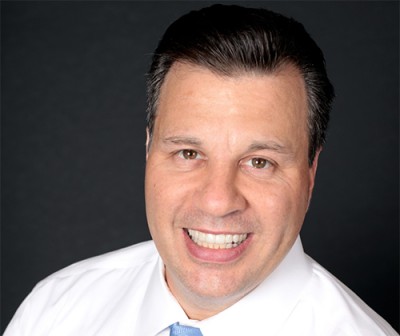Warren Buffet said, “The difference between successful people and extremely successful people, is that extremely successful people say ‘No’ to almost everything.” But why is this true; and how can you put it into action?
The truth is that if you are managing your company based on a predetermined set of objectives, anything outside of those objectives should receive a hearty “No,” when it comes your way. Although this sounds difficult in theory, in practice it can be achieved in three simple ways.
Take a Vacation from “Yes”
 The fact that you are reading this article means that you have embraced the entrepreneurial spirit and want to learn and grow – both in your business, and personal life. Part of that spirit is an addiction to saying ‘Yes’ to every good idea that comes your way. However, this can be damaging to your overall success. After all, is it not better to be good at just a few things, than to be average at many? Challenge yourself: For the next 90 days, take a vacation from the word “Yes” to anything that does not align with who you are, your core values, and where you are going.
The fact that you are reading this article means that you have embraced the entrepreneurial spirit and want to learn and grow – both in your business, and personal life. Part of that spirit is an addiction to saying ‘Yes’ to every good idea that comes your way. However, this can be damaging to your overall success. After all, is it not better to be good at just a few things, than to be average at many? Challenge yourself: For the next 90 days, take a vacation from the word “Yes” to anything that does not align with who you are, your core values, and where you are going.
At first, it will not be easy to say no. In fact, you might find the temptation almost overwhelming. Conversely, if you stay the course, you will find a peace and harmony within your life’s purpose that you will love in the long run. So when the next blinky-shiny thing comes along, simply ask yourself, “Does this item align with my goals? Will this item matter in one year?” Then sit back and watch the things that matter flourish.
Adopt a Punch Card Mentality
 Many retail establishments allow customers a discount if they purchase 10 items or services. What if you adopted that mentality to your decision making, knowing that you could only punch your card 10 more times in the course of your life? On a personal note, punches to your card would be choosing a spouse or buying a home. From a business standpoint, punches would be significant decisions made about projects to pursue or the important things to which you would say yes.
Many retail establishments allow customers a discount if they purchase 10 items or services. What if you adopted that mentality to your decision making, knowing that you could only punch your card 10 more times in the course of your life? On a personal note, punches to your card would be choosing a spouse or buying a home. From a business standpoint, punches would be significant decisions made about projects to pursue or the important things to which you would say yes.
Therefore, instead of hundreds of decisions you have to make, you could narrow it down to 10 important decisions. If you narrow it down to 10 decisions, or punches on your card, you’re going to choose the really important items, and say no to all the rest. You’ll feel empowered by the sense of relief that not everything requires an in-depth decision process.
Develop a “Stop Doing List”
You can put the task to pen and paper in this simple exercise. On a piece of paper, make a list of the 25 most important things you need to be doing in your business at this very moment. Carefully review the list and find the top 5 things that are most crucial. These are the major objectives. That leaves the other 20 items as your “Stop Doing List”. If an idea or activity does not fall within those 5 top things, the answer to them is ‘No.’ Does this mean that everything else should permanently go by the wayside? Of course not! You will always have a long list of things for your consideration. When these sorts of things come up, you can create a parking lot in which to hold them for the future. One section can be short-term parking, i.e. items and ideas you want to do tomorrow or next week, and the other section can be long-term parking, i.e. things to explore farther down the road.
As you proceed, remember that when you say ‘No,’ you free up time in your life to allow in the things that perfectly align with your future success. You will prune out activities and people that are keeping you from being your best and most successful self. And, as with the pruning of a tree, this will lead to new, healthy growth, that will increase the strength and longevity of your business and personal life.
 Rick Sapio has been involved in more than 100 companies, as either a founder, investor, owner, or operator, over the past 30 years. Rick has realized that by using a principle-centered business approach, one can radically increase the success of virtually any business. For the past 22 years, he has been CEO of a financial services/healthcare holding company. Go to www.BusinessFinishingSchool.com to learn more about his 12 Foundational Principles of Business.
Rick Sapio has been involved in more than 100 companies, as either a founder, investor, owner, or operator, over the past 30 years. Rick has realized that by using a principle-centered business approach, one can radically increase the success of virtually any business. For the past 22 years, he has been CEO of a financial services/healthcare holding company. Go to www.BusinessFinishingSchool.com to learn more about his 12 Foundational Principles of Business.







